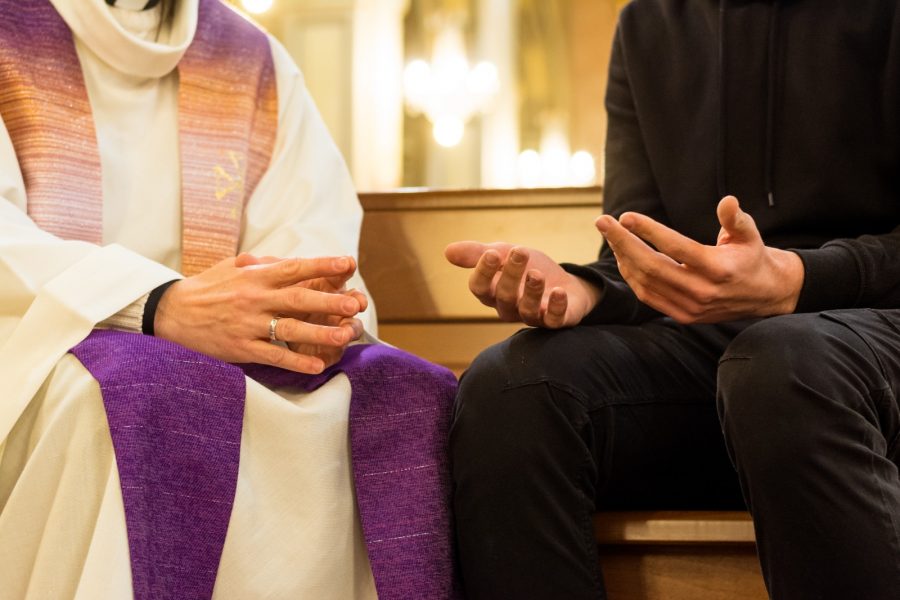Our culture has blurred the meaning of sin. It jokes about it as if it were the most innocent thing in the world. It speaks of sins, even the most serious ones, in diminutives: little sins, little vices, “original” sins, that is, sins that confer a touch of originality on the one who commits them. We are afraid of everything except sin. We are afraid of Covid, of atmospheric pollution, of losing our job, of a competitive examination, of a medical diagnosis, of failing an exam… But we are no longer afraid of sin.
Hence, nowadays, instead of getting rid of sin, we strive to get rid of the remorse of sin; instead of fighting against sin, we fight against the idea of sin. The problem is denied instead of solved; it is confined to oblivion instead of being brought to light. As if one could eliminate death by eliminating the thought of death. Or as if someone is trying to get rid of a fever by changing beds. This mentality is by no means alien to us believers.
The consciousness of sin is increasingly beyond our horizon. We recognise it only when we are the ones who are wronged. Perhaps it is a reaction to other times when guilt was insisted on in time and inappropriately, and undue pressure was put on consciences. And yet, perhaps the baby has been thrown out with the bathwater. The response to the God of justice must not be a kindly, loving God, but the Abba God, wounded to the core by the pain caused by the sin of his children.
Otherwise sin and its consequences are not eliminated, but left to its own devices, unleashing its disastrous fury. It is very delicate today to transmit this awareness of sin without falling into blaming or frightening discourses, but without undermining the importance of our decisions, our freedom to choose and our real possibilities to do evil. It is true that we sometimes take tangential paths (insisting on the sin of the world, etc.). But we cannot fail to take an honest look at our own lives, looking at what distances us from God and harms others. Faced with its reality, two diametrically opposed paths can be taken: either repentance or hardening.
We need to recognise the malice of sin. A doctrinal recognition is not enough. It is necessary, but it will always be insufficient. An existential and personal recognition is required. It is the recognition that sin is something monstrous and real. It is a recognition that must produce in us an allergy and a visceral abhorrence of evil. Therefore, it is a matter of recognising it in its tremendous seriousness, which today’s social environment seems to deny or undervalue.
Juan Carlos cmf
(PHOTO: vytas_sdb)






